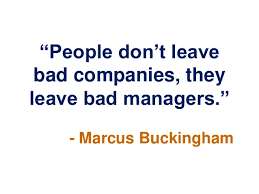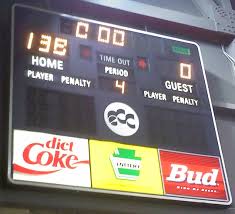We always need to be careful generalizing our assumptions when it comes to assessing employees of different generations. For the first time in the corporate world, we have four generations working side by side. How we manage the diversity of each of these generations is important. I have been in too many situations when managers made a blanket statement to a team of people consisting of multiple generations, and expected the same outcomes. We have to be cautious to manage each individual person and situation. Are you sensitive enough to know if generational differences in your corporate workplace are causing concerns?
We need to lead differently than we have in the past. We need to have a deeper understanding of what may be going through an employee’s head: what drives people, inspires people, motivates people, and frustrates people? At the same time, we must now seek to include how generations as a whole are perceived. Based on when people grew up, larger groups of individuals may react to circumstances and situations as a collective group differently. We have found that people of different generations are motivated differently, were reared by their parents differently, and grew up differently. These differences are what make us great. If we can capitalize on these differences, we can create a stronger bond through them and thereby create a stronger company.
We need to understand that we all grew up in different settings, locations, times, and cultures. My kids don’t know what it is like to walk into a bank. They only know about ATMs and watching Mommy and Daddy doing their banking online. These differences impact our ability to translate information at different speeds. Have you ever peered over the shoulder of a teenager while they were at a computer and tried to read the hieroglyphics of his or her instant messages or texts? It is hard enough trying to relate, let alone trying to read this new language. I at least know that, among other things, “POS” stands for “parent over shoulder.”
As a child of Generation X, I have become a parent with much more involvement in my children’s activities than generations before me. I have friends whose children chose to live in their parent’s homes longer than in past generations. We also have been part of a culture in which every child gets an at-bat in t-ball, and medals and certificates go to all participants just for showing up. There seems to be less emphasis on winning and losing earlier in children’s lives today, and competition is a secondary priority. I have talked with many parents who simply want to provide their children with the confidence to try new and different things, in order to help them figure out what they want to do as adults. There is some irony to this upbringing because of parental intervention.
This type of close supervision, guidance, and support create differences in when and how these people mature in their lives, including entry into the workforce. I have had parents call after interviews to see how their child did, or ask what decision I made. I even had a worker’s daughter write me a note asking me not to fire her mom. I guess parental involvement goes both ways. By the way, I had no intentions of firing the individual at the time, but she knew she was struggling and must have discussed it with her ten year old.
The intense conversations I had on my retention task force interacting with frontline people and managers of all generations helped me to understand what it took to retain them. The research provided me with plenty of factual and anecdotal information regarding managing various generations. The fact is that for the first time in any generation, many offices are filled with colleagues from the last four generations. We have the older generation (typically defined as people born before 1945), Baby Boomers (typically defined as people born in the mid-1940s to mid-1960s), Generation X (or the MTV generation—typically defined as people born between the mid-1960s to early 1980s), and Generation Y (typically defined as people born in the early 1980s or after).
We have situations in which people from the older generation are coming back into the workforce from retirement due to boredom or financial necessity. How do you train and manage someone who truly knows they are working simply for a paycheck, and do not plan to climb the corporate ladder? Or, did I just make my own blanket assumption with that statement? I don’t have the right to make the assumption that they don’t want to climb the corporate ladder, or that they aren’t just as driven as the twenty-two-year-old looking for the next manager’s opening. We have to be careful of biases and make no assumptions. What if the person has twenty years of management experience and their current manager is twenty-five, with only a year or two of experience? The multiple generations add a new complexity to the work environment and add new layers of sensitivities required from managers and non-managers alike.
None of the situations described or questions asked are easy to address and answer. However, knowing that there is a potential need to adapt our style based on generational wants and needs will make us stronger leaders and more effective professional colleagues. Managing, or even just working next to, a returning retiree or a new hire straight out of high school doing the same job has to be handled based on each individual first and foremost, with a quick balanced glance into the overall generational consideration. Each person will have different goals, different experiences, and different expectations of the business and manager. Once we understand this and act on it appropriately, we will be ahead of the game.
Generation Y has been in a technologically fast world their entire lives—some seem like they were born with a cell phone in their hand. I have found that many Gen Y individuals are often looking for a fast-paced and flexible environment. A manager may have to go out of their way and be creative to keep someone from this generation occupied and moving. Gen Y is also known for constantly looking for positive and reinforcing feedback. When a manager screams at a Gen Y person for a small mistake, it may make a person who is always on the go and looking for constant stimulation simply not return the next day to work. The manager must assess the situation and may need to be prepared to invest a lot more of their time and effort to ensure that they are keeping up that stimulation, providing the attention and praise that individual may be thirsting for.
A manager must also be flexible and understanding. I once had a young man call out “well” because of a new video game release. He spent over ten hours staring at a television screen and playing the game with no guilt in the world for missing work. He came in the next day exhausted and slightly unfocused. But he came in. He respected me enough to tell me the truth and said he was taking the time afforded him by the benefits of the company. I think I would have kicked and screamed earlier in my career. I got a good chuckle and we went on with our day. That person went on to become a very successful technology expert in our company.
Baby Boomers are often identified as wanting to be defined by their job responsibilities. They value hard work and teamwork. Managers may need to be sensitive to putting them into more group-related functions, as opposed to assigning an independent task.
It is important to be careful not to stereotype. You should monitor and communicate regularly to get a feel as to whether these blanket assessments are accurate to the individual with whom you are working, or if that was just generational bias statements observed by common employee researchers. As a manager, it is critical to make your own individual assessment, but understanding some commonalities within generations may be the start we need in order to have an effective conversation. We should use our own observations to see if any of these so-called tendencies are accurate while we get to know each of the people working with us. The key message is to understand whether any of these factors impacted our decisions and actions regarding work assignment, management style, and how to drive the team towards a collective goal. As a colleague in the middle of multiple generations, I can look to build bridges and find creative ways for the most effective collaboration, training techniques, and partnership among everyone.
We have had generations who supposedly always question authority and the status quo. We have labeled certain generations as being constant multitaskers, disciplinarians, and so on. Each generation has had different backgrounds and influences, and each generation has its own visions, opinions, and ideas. We must also remember that individuals also have their own visions, opinions, and ideas.
We need to be aware of the generational differences as a whole and sit down with each individual to understand what their visions, opinions, and ideas are to weave together the tapestry of the team in order to make it stronger. You should consider generational groups’ opinions on many facets in a work environment, such as:
- Flexibility—schedule, family situation, outside obligations
- General learning ability—fast learners, visual versus book
- Coaching—give direction and tell them to go do it versus hand-holding
- Work/life balance expectations—weekends, nights, single parents
- Feedback and motivational style—constant encouragement, hands-off, handwritten encouraging notes, team functions
We must always seek to build trust among the various generations and gain mutual respect for each other’s strengths. We must not make any assumptions or generalizations. We should be flexible in understanding everyone’s backgrounds and individual contributions to maximize the strengths of one another while using our generational knowledge as a tool to build relationships and glean an understanding of the person as a whole. The company, in turn, will be given the gift of balancing the workforce with all generations in order to get the best of all groups.
Thomas B. Dowd III’s books available in softcover, eBook, and audiobook (From Fear to Success only):
- Now What? The Ultimate Graduation Gift for Professional Success
- Time Management Manifesto: Expert Strategies to Create an Effective Work/Life Balance
- Displacement Day: When My Job was Looking for a Job…A Reference Guide to Finding Work
- The Transformation of a Doubting Thomas: Growing from a Cynic to a Professional in the Corporate World
- From Fear to Success: A Practical Public-speaking Guide received the Gold Medal at the 2013 Axiom Business Book Awards in Business Reference
- The Unofficial Guide to Fatherhood
See “Products” for details on www.transformationtom.com. Book, eBook, and audiobook (From Fear to Success only) purchase options are also available on Amazon- Please click the link to be re-directed: Amazon.com










